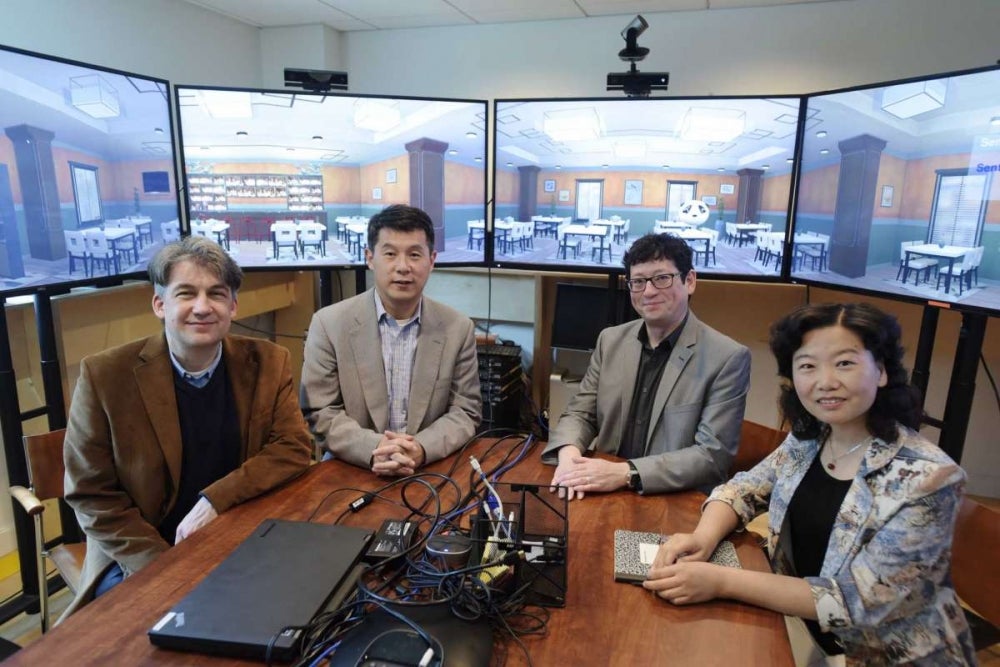
RPI professors, Jonas Braasch, left, associate director of CISL, Hui Su, second from left, director of CISL, Ben Chang, third from left, professor of arts, Games Simulation Arts and Sciences and Jianling Yue, Chinese lecturer, pose for a photo on Thursday, June 7, 2018, in Troy, N.Y. The four professors are working on the Mandarin Project.
TROY — To find the powerful ancient manuscript, the student must first meet the mysterious Mrs. Ling — dressed in turquoise and with huge dark eyes that are a bit menacing — in an ornate tea house. And he must complete the Chinese tea ceremony correctly.
Ling speaks only Mandarin and the student, who is playing a game, must respond to her in Mandarin. Because the screens displaying her world are 12 feet tall, Ling is life size. Sounds of clanking dishware and background chatter are clear. The player uses a hand device to reach out from his real world to Ling's virtual reality table to pour tea from the jade green pot.
If he does well on his own, Ling may give him clues — in Mandarin — to the treasure he seeks. The tea house was a brainchild of RPI Games and Simulation Arts and Sciences Director Ben Chang and "Star Trek: The Next Generation" script writer Lee Sheldon (a former RPI professor) in 2013.
